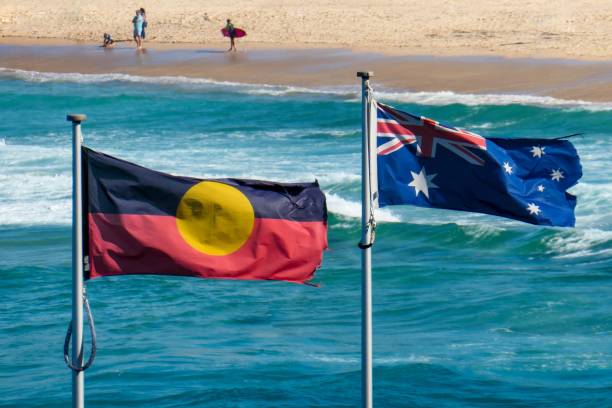.png?width=50&name=Untitled%20design%20(34).png)
Peter Francis
The Full Federal Court of Australia’s decision in Epic Games, Inc v Apple Inc [2021] FCAFC 122 confirms that, in certain circumstances, an exclusive jurisdiction clause will not always be enforced.
What is an exclusive jurisdiction clause?
Firstly, an exclusive jurisdiction law clause enables parties to an agreement to specify that any dispute that arises will be heard in a nominated jurisdiction. Due to the exclusive nature of this clause, parties are prohibited from bringing an action in a different jurisdiction.
An exclusive jurisdiction clause is generally integrated with a governing law clause. Thus, specifies the law which will govern the terms and conditions of the agreement, and typically reads as follows:
This agreement is governed by the laws of the State of Victoria. Each party submits to the courts of the State of Victoria and its courts of appeal.
Why is an exclusive jurisdiction clause important?
Significantly, inserting an exclusive jurisdiction clause provides parties with certainty. Hence, each party knows where the dispute will be heard and what procedural rules apply. This potentially reduces delay and expense as it may prevent further disputes over which court to take their issues to. Contracting parties may also use this clause to their own advantage, enabling them to nominate their preferred jurisdiction.
Will an exclusive jurisdiction clause be given effect in Australia?
Australian courts will generally uphold the terms of an exclusive jurisdiction clause. However, there are circumstances where a court may not give effect to the intentions of the parties.
The recent decision of the Full Federal Court of Australia in Epic Games, Inc v Apple Inc[1] confirms that an exclusive jurisdiction clause will be invalid where there are “strong reasons” based on public policy for the clause to not be enforced and a proceeding in Australia should be permitted to proceed.
Epic Games v Apple
Background
Epic Games, Inc. (Epic Games) allegedly developed a direct payment system into its popular video game, Fortnite, that effectively enabled it to bypass Apple Inc.’s (Apple) commission fee for Apple’s iOS App Store (App Store) purchases. Apple responded by removing Fortnite from the App Store.
Epic Games subsequently commenced proceedings in the US District Court for the Northern District of California. This was done against Apple in relation to Apple’s anti-competitive practices in the App Store.
In November 2020, Epic Games initiated parallel proceedings in the Federal Court of Australia against Apple and its Australian subsidiary (Apple Pty Limited), asserting that Apple had engaged in anti-competitive and unconscionable conduct in contravention of various provisions of the Competition and Consumer Act 2010 (Cth) (CCA).[2]
Apple sought stay (i.e. discontinuance) of the proceedings on the grounds that the Apple Developer Program License Agreement between Apple and Epic Games requires all disputes between the parties to be heard by the courts in the Northern District of California.
9 April 2021, the primary judge in the Federal Court granted a temporary stay of the proceeding sought by Apple.[3] Epic Games appealed the primary judge’s decision to the Full Court.
Full Court’s decision
On 9 July 2021, the Full Court overturned the primary judge’s decision to stay the proceedings. In reaching this decision, their Honours found there were “strong reasons” based on public policy for the proceeding to be heard in the Federal Court, in particular:
- the proceeding involves Apple’s Australian subsidiary, which is not itself a party to the exclusive jurisdiction clause;
- the proceeding involved “serious issues of public policy”. Which would potentially have a far-reaching consequences on “the state of competition in markets in Australia and very large numbers of Australians”;[4]
- the legislative intent was for claims pursuant to CCA Part IV to be determined in Australia;
- the various advantages of hearing such claims in Australia.
However, the battle may continue as Apple indicated its intention to appeal to the High Court.
Key takeaways
The Full Court’s decision signals its intention to retain responsibility of hearing breaches of Australian competition and consumer law which involve “serious issues of public policy” in Australia, despite the terms of an exclusive jurisdiction clause. Consequently, it will be difficult for large multinational companies to “contract out” of Australian competition and consumer law by including an exclusive jurisdiction clause in cross-border agreements.
However, this is not the death of the exclusive jurisdiction clause. Despite the potential for Australian courts to not give effect to such clauses in particular circumstances, commercial agreements should generally include an exclusive jurisdiction clause as they provide increased certainty. Furthermore, they can minimise lengthy and costly arguments about jurisdiction in the event a dispute arises.
Need help?
If you have any questions or wish to discuss the above, please do not hesitate to contact us.
[1] [2021] FCAFC 122.
[2] In particular, Epic Games alleges that Apple has contravened certain section of Part IV of the CCA (namely, sections 45, 46 and 47) and section 21 of the Australian Consumer Law, contained in Schedule 2 of the CCA.
[3] Epic Games, Inc v Apple Inc (Stay Application) [2021] FCA 338, Justice Perram at paragraph 1.
[4] Ibid, paragraph 97.
.png?width=675&height=338&name=Untitled%20design%20(8).png)
.png?width=100&height=50&name=Untitled%20design%20(15).png)
.png?width=800&height=800&name=Untitled%20design%20(57).png)


